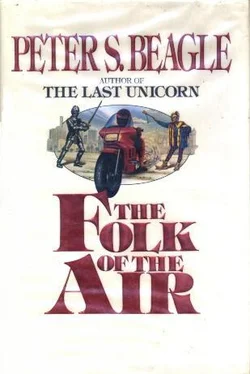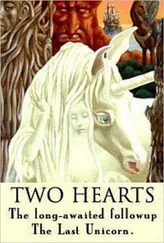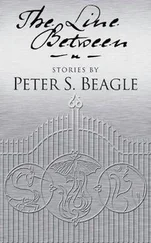The Lady Criseyde and her grave-eyed lord Duke Frederik were the first who turned to face each other and join hands. They moved like tall birds of plain plumage, and Farrell made slips in his playing, watching them. Other couples followed quickly as the four musicians took up the tune, the rebec replaced by a shawm. King Bohemond and Queen Leonora shoved and stumbled to the head of the double line, jumping in on the wrong beat, but leading the dance with a kind of desperate pomp, even so. Garth de Montfaucon pounced down on Julie, swooping her under his arm and prancing away with her, feigning jolly goatishness. Farrell saw sourly that he was easily the best dancer among the men.
The horns drowned him out once they got together, the crumhorns burring and humming, the shawm blasting away like a marching band. Farrell put the lute down on the dais after a while. He felt himself becoming, not at all sad, but very still, oddly content to be invisible, watching the dance recede from him. But there was as well a curious prickling deep in his nerves; an eager, elusive disquiet that turned him, almost unknowing, away from the costumed revelers and toward the darkness beyond the clearing. Where did Ben go? I should look for Ben .
As the trees drew nearer, the vague fretfulness sharpened in him, becoming something like the mood that seizes on horses when there is a wind rising or rain brooding, or when the presence of lightning sets every molecule of the air on edge. He halted once and looked back, seeing the lights and hearing the music, dainty with distance now, as he had found them when he first walked through the night meadow with Julie. But here comes the King to trouble our dancing, eya! afraid lest some youth should carry off his April-drunk Queen, eya ! A fox laughed metallically on his right; from the redwoods gathering before him, some drowsy bird cooed two icy notes over and over. He heard someone singing to herself under the trees.
It was a thin, whining little song, such as a child drones endlessly at play in the dirt. If there were words, Farrell heard none, but the sound gave a voice to the restlessness jigging inside him, and he went toward it, feeling himself once more warm between the paws of the inevitable. The song rose slightly, more or less repeating itself in a higher pitch, drearily persistent. The fox yapped a second time, and the moon went out and came back on again.
Farrell never actually saw it happen; the moment was so brief that he was aware of it only as he might have sensed an awkward splice in a film—a twitch of color values, a phrase or gesture only partly accounted for. But for just that wink he felt everything inside himself—blood, breath, digestion, the cells greedily feeding and bearing and dying—stop too; and he stood where he was, while a warm breeze that smelled almost pleasantly of rotting fruit flicked past him and was gone.
Just ahead, in the older night under the trees, the woman’s song ended in a tiny, crumpled yelp of terror. A man began to laugh, softly at first.
It was charming laughter, but not nice. Farrell had never heard laughter like that; there was a dissolving sweetness in it, and the memory of many good times, and no kindness at all. Sirens , he thought, mermaids . It hung in the air like the smell of burning.
From where he stood, Farrell could not discern the man’s face in the darkness, but he heard his voice as clearly as if the two of them were across a chessboard from one another, or a sword’s length apart. “God a’mercy, and here’s poor Nicholas again, all alive-o!” It was a light, curling voice, the words airily poising their feet to dance, and something in the rhythm made Farrell think about the yellow-eyed man who had stumped like a falcon into Sia’s house at midnight. He had dreamed of the man twice since then.
“Arms, legs, senses, fancies, follies, and lovesome honey appetites, every one with me still,” the stranger announced cheerfully. “Now bless thy weazeny breech and lantern countenance, my sweeting, and may Nicholas Bonner present his unchurched compliments?” Farrell heard a small scuffle, apparently halted by an almost inaudible squeak from the woman, and then the wonderful soulless laughter again. “Nay, so, so there, dear duck—surely thy dam lulled thee to the roll of blessings awaiting for her who’s first to lie with springtime Nick, come all chilled and lonely out of old dull dark once more. Thy firstling will know the talk of all animals, thy second-born the cry of gold in the earth—hither, then, swiftly, for I’m cold, I’m cold.” For that instant there was such wailing sadness and terror in the voice that Farrell could not breathe.
Brush and twigs crackled again, but the woman called out in a tone mixing near-hysteria with a certain chattering imperiousness, “Away, touch me not, what are you doing? I mean, I have scribed the pentacle thrice round myself, what are you doing , you dumb dork?” And those were the first clear words that Farrell ever heard Aiffe speak.
The man did not answer immediately; when he did, his speech had already begun to alter, but the laughter continued to prowl in the shadow of each word. “Actually, one time is quite enough for a true pentacle. It’s a circle you’re to weave thrice, and then it wards off nothing a maid with such great lean shanks couldn’t outrun.” A single chuckle sprang past Farrell on soft paws, as though to take up its own independent life in Barton Park. The stranger went on, “Any road—nay, pardon, I’ll have it presently—anyway, the matter’s moot altogether, since your pentacle bites only ‘gainst demons and the like, and good Nick Bonner’s no demon. Not even Will Shakespeare ever called me that—and indeed he spent more time than most trying to devise a fitting name for me.” His voice had been husky as flame when he spoke first; now, with use, it was taking on color and suppleness like a new butterfly, stretching itself, basking in the moon.
Farrell sidled and crouched and skulked until he could see Aiffe facing him almost directly across a strange small grove of burned-out redwoods. Some forest fire had scorched the trees to standing charcoal, gutting them so that they looked like great, black, high-backed chairs dragged up around a table of air. The man was standing in their shadow with his back to Farrell, who sensed more than saw that he made as slight a figure as Aiffe herself and that he was naked.
Aiffe was recovering herself rapidly, forcing a bold dignity that Farrell had to admire. She said, “The pentacle’s there because I happened to be summoning a demon. If you aren’t one, you can just go back where you came from. I don’t want you.” She added several halting words in what Farrell assumed to be Latin.
The laughter flowered brightly between them, and Aiffe took a step backward, touching her face. The stranger said happily, “Dear squirrel, dear coney, dearest little partridge, it would take such priest-cackle as great Innocent himself never knew to send Nicholas Bonner around the block. I’ve not been for anyone’s bidding since Master Giacopo Salvini died at the stake in Augsburg—and there was a man had demons sweeping his hearth and currying his fine horses.” He whistled softly and chuckled again. “Ah, but forty men-at-arms came to curry him , and he’d not time to ask his lackwit niece what sweet Nick had promised her in the dark of the chimney corner. And with him went up the only words could ever command my spirit, and the rest is all freedom. Child, there’s jabber binds Lucifer to obey that wouldn’t do up a collar button on Nick Bonner.”
Even at that distance, Farrell could see that the thin girl was trembling, but she answered coolly, “You’re such a liar. Somebody sent you back out into limbo, or wherever you go, and you had to stay there until I called you. You’re nothing, I still want a demon.” Her voice was the lute’s voice, poignant and shifting, with coins and little drums in it, and a rubber-band whine.
Читать дальше












